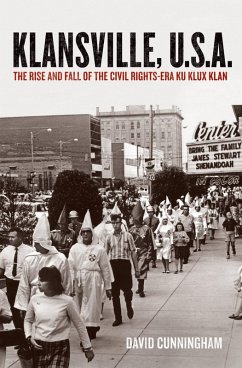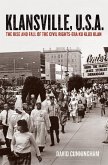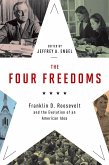In the 1960s, on the heels of the
Brown vs. Board of Education decision and in the midst of the growing Civil Rights Movement, Ku Klux Klan activity boomed, reaching an intensity not seen since the 1920s, when the KKK boasted over 4 million members. Most surprisingly, the state with the largest Klan membership-more than the rest of the South combined-was North Carolina, a supposed bastion of southern-style progressivism.
Klansville, U.S.A. is the first substantial history of the civil rights-era KKK's astounding rise and fall, focusing on the under-explored case of the United Klans of America (UKA) in North Carolina. Why the UKA flourished in the Tar Heel state presents a fascinating puzzle and a window into the complex appeal of the Klan as a whole. Drawing on a range of new archival sources and interviews with Klan members, including state and national leaders, the book uncovers the complex logic of KKK activity. David Cunningham demonstrates that the Klan organized most successfully where whites perceived civil rights reforms to be a significant threat to their status, where mainstream outlets for segregationist resistance were lacking, and where the policing of the Klan's activities was lax. Moreover, by connecting the Klan to the more mainstream segregationist and anti-communist groups across the South, Cunningham provides valuable insight into southern conservatism, its resistance to civil rights, and the region's subsequent dramatic shift to the Republican Party.
Klansville, U.S.A. illuminates a period of Klan history that has been largely ignored, shedding new light on organized racism and on how political extremism can intersect with mainstream institutions and ideals.
Dieser Download kann aus rechtlichen Gründen nur mit Rechnungsadresse in A, B, BG, CY, CZ, D, DK, EW, E, FIN, F, GR, HR, H, IRL, I, LT, L, LR, M, NL, PL, P, R, S, SLO, SK ausgeliefert werden.









